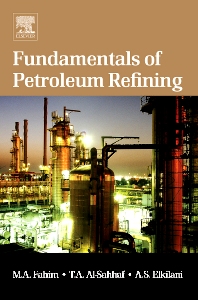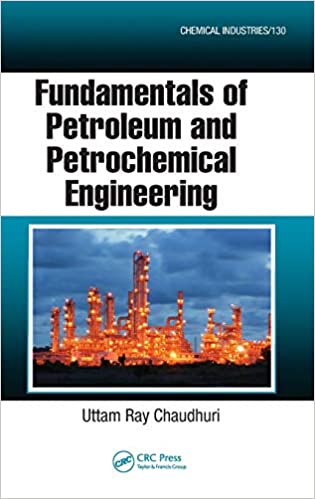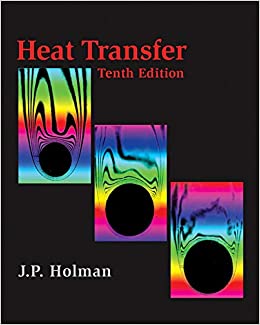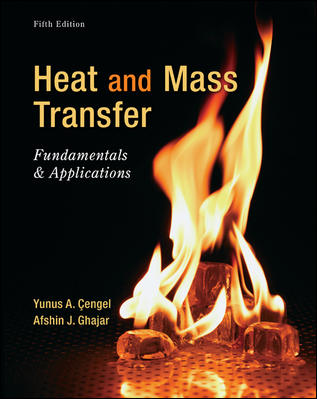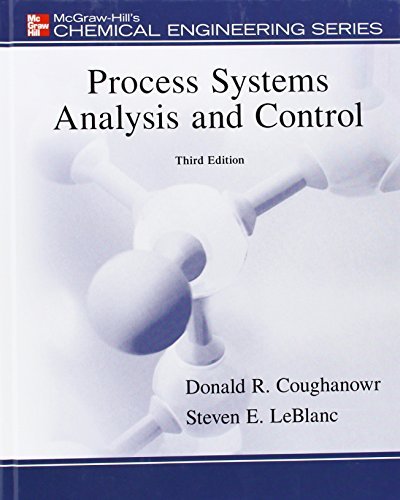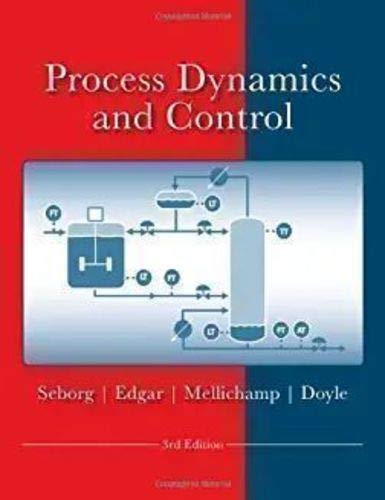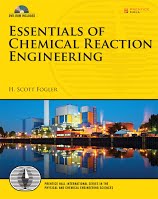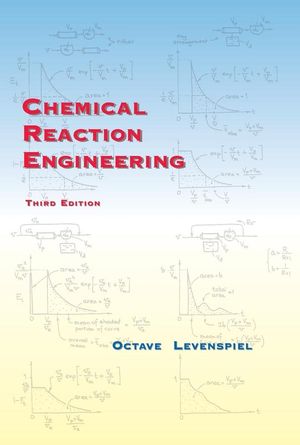Resources in Chemical Engineering (Part III)
Thankfully, I have a few good memories of my third year before COVID-19 became a huge issue in our lives. I actually started taking third-year courses in my second year, the first was Process Instrumentation and Instrumental Analysis, the second was Separation Process, and the third was Engineers in Society. I have previously discussed my experience in Separation Process class in my former article so please check it out! Process Instrumentation and Instrumental Analysis is indeed a vital course in chemical engineering as it serves as a pre-requisite course for Process Dynamics and Control and Plant and Safety Engineering which are third and fourth year courses respectively. Though I used the reference book stated in the course outline to solve numerous calculation and True or False questions, it was not really necessary as I had my number-one lecturer and role model, Dr Yeap Swee Pin teaching the subject. The hardest part of the subject was actually the most enjoyable as we had to draw Piping and Instrumentation Diagrams (P&ID). The theoretical parts were simplified and made accessible by Dr Yeap. Tip 14: Never memorize, instead spend the time trying to understand the content. Once you truly understand it, you will never forget what you have learnt and it makes it so much easier to apply the knowledge for any situation arises.
There actually is an interesting underlying story behind why I took Engineers in Society (EIS) in my second year. To be brief, I had failed to secure my cooperative placement and ended up spending the short semester by taking two courses which were EIS and Malaysian Studies. EIS is a course feared by all my seniors and I never truly understood why. Sure, it is immensely a theoretical subject but if you actually take the time to understand what is being taught in class instead of memorizing it word for word, the subject is no challenge at all. I distinctively recall studying the entire syllabus on the night of my final examination. Sure, it sounds like I procrastinated but I had already spent my days writing out the syllabus twice so that it is ingrained in my head. I was able to finish the exam early and left the hall immediately to continue trying to call my best friend who had been missing in action for the past two days. Sometimes I let my feelings cloud the things I need to do. Tip 15: Ambitions first before anybody. If you are like me, you don’t have a backup plan and you can’t afford to screw up.
The January-April 2020 semester started out quite relaxing for a change. I have been going through a lot of mental duress and I made it a small priority to treat myself to a nice breakfast before starting my classes. I frequented Old Town every morning (which was a habit built from the previous short semester) and ate a hot breakfast with my hazelnut coffee while watching my favourite comedians on YouTube such as Tom Harlock, Danny Gonzalez, Kurtis Conner, Drew Godden, Not Even Emily, and so on. The class I enjoyed the most that semester was Petroleum Refining Engineering which is actually a fourth-year subject. I honestly had a hard time concentrating in class and trust me concentration is key for this class – especially if one of my favorite lectures, Dr. Sum Jing Yao is teaching the subject. This man is undoubtedly a role model for me and his brilliance is outstanding. Some of my friends resorted to recording his entire lecture on their sound recorder but I stuck with the old-fashioned pencil and paper. (I honestly never use a pen to write my notes. I feel like my handwriting looks better when written in pencil and I have an obsessive-compulsive disorder (OCD) when it comes to neatness so…). I wrote my notes referencing two books which were “Fundamentals of Petroleum and Petrochemical Engineering by Uttam Roy Chaudhari, and Fundamentals of Petroleum Refining by M.A. Fahim, T.A. Al-Sahhaf, and A.S. Elkilani” and numerous YouTube videos. Understanding the content is essential in achieving a perfect score in your assessments where most of the questions require you to analyze a set of given properties or a scenario in the petroleum refinery. You simply don’t have a choice other than to invest your time and energy in gathering knowledge even if it costs you a few late nights. In fact, whilst tutoring this subject in January-April 2021 semester, I found that I should also advise you to pick up “Chemical Process Technology by Jacob A. Moulun, Michiel Makkee, and Annelies Van Diepen” as you will find more explanation to the material found in your lecture notes.
Moving on, Heat Transfer was undoubtedly a challenging subject that required a lot of practice using the questions in my two favorite reference books which were “Heat Transfer by J.P. Holman, and Fundamentals of Heat and Mass Transfer by Yunus A. Cengel and Afshin J. Ghajar”. I actively recall creating a bank of questions to practice with my friends before all our assessments. It is an extensive subject and you cannot study it just before your examination. Interestingly enough, our examinations were changed to online assessments owing to the outbreak of COVID-19, and questions presented in the paper required you to source information from journal articles. I wish I had known how to search for information properly using Google Scholar and I think reading and extracting information from journal articles should be part of the Technical Communication course offered in Year One. Personally, the chapter on heat radiation was hardest for me as I had a hard time determining the view factors (I am rather hazy until this day to be honest). Towards the end of the subject, you are introduced to different types of heat exchangers which you will study further in Process Equipment and Design. There really is no option but to practice as many questions as you are able to for this subject. You’ll thank me later.
Surface Chemistry was indeed an interesting subject as it opened up new interests for me. I was fascinated with adsorption and catalysis and their applications towards the betterment of our environment. The first chapter of this subject is basically what you have covered in Material Engineering and which is the reason (if you recall) why I had asked you to pay attention to it in the former articles. The subject is not difficult and I did not rely on any reference books (except the book which I recommended in Material Engineering for the first chapter of the syllabus). I was grateful for the assignment component of the subject which required a group of students to compare and contrast two experimental articles on adsorption and I believe this skill is extremely important for your Final Year Project later on. The best memory I have of this subject was my evening study sessions alone in the library with my notebooks and my music. And while we are on the subject of environmental betterment, how can we forget Environmental Engineering? I am not fond of theoretical subjects and Environmental Engineering was clearly not my favorite subject but as I have mentioned before, I love challenges and I don’t back down from them. There wasn’t any book used in studying this subject; you have to be open to the fact that your answers aren’t just going to be conveniently packed into one book. Tip 16: Don’t be afraid to go the extra mile while studying. You won’t find one book with all the explanations and answers to a vast subject like Environmental Engineering. You have to do the hard work of digging through literature and extracting the required information. This is in fact necessary for this subject as the assessments for this course hold the highest failure percentage.
Simulation Lab required a lot of self-studying from YouTube videos and UniSim/SuperPro software manuals. Essentially any subject which is assignment/project-based requires a lot of input from your part (hence Tip 16 as stated earlier). I struggled a lot with this subject at the beginning but when faced with the group assignment during the study-from-home period and when you are the only one with a working UniSim software in your group, you have no choice but to take charge. The grade of my group depended on me to get the simulation of our ammonia production process right. And after all the late nights spent in front of my laptop and of course, with the help of our instructor Mr. Fauzi (another role model of mine), I was able to deliver results. In fact, I had the chance to meet Mr. Fauzi again in Process Dynamics and Controls class and Control Lab. Let me start by telling you that Process Dynamics and Control is one of the toughest subjects in chemical engineering and it is on my list right after Mass Transfer. I had two excellent books which were “Process Systems Analysis and Control by Donald R. Coughanowr and Steven E. LeBlanc, and Process Dynamics and Control by Seborg, Edgar, Mellichamp, and Doyle”. I did not face much difficulty understanding what was taught to me but the assessment content is a rather next level and if you don’t practice, you won’t be able to finish your paper on time or even secure a passing grade. You definitely require good fundamentals of differential equations and Laplace transformations to model real-world chemical engineering problems. And this subject does not end right after your final examination; it extends into Control Lab where you are exposed to the Simulink software to design a control system for a myriad of chemical processes. Though this lab was only one credit hour, it felt like a three-credit-hour subject and I would not have secured a good grade if it weren’t for Mr. Fauzi’s patience and willingness to help. From the bottom of my heart, I thank my academic advisor and one of my role-model lecturers, Mr. Fauzi, for all the support he has given me.
I’ve taken classes with my former HOP (Head of Programme) before. Ms. Farhana taught me Engineering Physics and our new and current HOP taught me Reaction Engineering. The main issue I had with this class was the timing as I was attending early morning classes in Ramadan. I never felt quite fresh enough to participate in class as I was still getting out of my just-rolled-out-of-bed stage. Reaction Engineering is not an easy subject and you can easily get lost in it if you don’t study daily. And the pop quizzes won’t make your life any easier either. If it weren’t for my practicing all the past year’s questions and studying religiously from “Elements of Chemical Reaction Engineering by H. Scott Fogler, and Chemical Reaction Engineering by Levenspiel” I wouldn’t have done well in my finals. Paying attention to the surface reactions chapter in Surface Chemistry will definitely help you towards the end of Reaction Engineering as you are required to derive the adsorption isotherm/rate equation. I legit spent time deriving the rate equation back in Surface Chemistry (even when I knew it wasn’t going to be assessed) so it wasn’t a complete blur for me when I was exposed to it in Reaction Engineering. As I always say hard work and going the extra mile eventually pays off.

